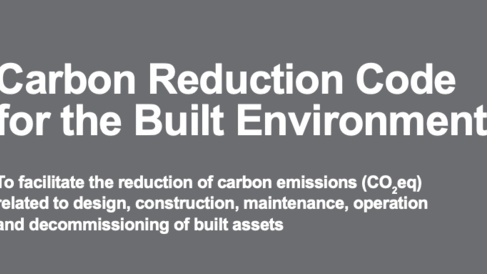
CSIC is delighted to announce publication of the first series of the Carbon Reduction Code for the Built Environment case studies showcasing some of the organisations that have achieved the PLEDGER level of the Code. This first series of case studies includes four organisations: City Building Engineering Services (CBES), Interclass PLC, Southern Construction Frameworks (SCF), and Space Architects.
Signing up to the Code prompted the organisation to create its baseline carbon tool and helped to support the work that it is undertaking, along with the requirement to report annually on its achievements. Since becoming a PLEDGER to the Code, we are delighted that some of our Tier 1 contractor partners, Kier, Morgan Sindall and Willmott Dixon, have achieved Champion level compliance with the Code. Emma Bull, Senior Framework Manager, Southern Construction Frameworks (SCF)
The Carbon Code, which was first published in 2020 and reissued in November 2021, forms part of the Construction Leadership Council’s Construct Zero initiative and is referenced in documents such as the UK Construction Playbook September 2022, the UKGBC Roadmap, and the UK Government Guidance Note Promoting Net Zero Carbon and Sustainability in Construction September 2022. The Carbon Code provides a simple way for organisations to demonstrate their commitment to net zero to their clients or supply chain.
The Carbon Code brings together and aligns sector wide initiatives and facilitates cross-sector collaboration to reduce carbon emissions (CO2eq) related to design, construction, maintenance, operation, and decommissioning of built assets.
A map of how the Code fits with other initiatives is here.
The CSIC’s plans to publish a series of case studies at all three levels of the Code – PLEDGER, SIGNATORY and CHAMPION. Through these case studies, Code compliant organisations will share their experience and show what is possible to achieve while encouraging other organisations to sign up.
Creating a community of built environment organisations to support each other will help everyone to reach the destination of net zero.
